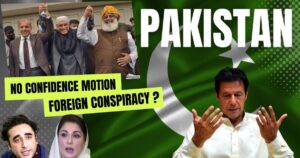Imran Khan, a name synonymous with cricketing brilliance, philanthropic dedication, and political determination, has etched his legacy in the annals of Pakistan’s history. Born on October 5, 1952, in Lahore, Pakistan, Imran Ahmed Khan Niazi has led an extraordinary life, transforming from a cricketing icon to a leader of a nation. His achievements and struggles reflect a man committed to his ideals, often against overwhelming odds.
Early Life and Education
Imran Khan was born into a well-off Pashtun family. His father, Ikramullah Khan Niazi, was a civil engineer, and his mother, Shaukat Khanum, was a homemaker. Imran grew up in a privileged environment but was instilled with a sense of discipline and responsibility from a young age. He received his early education at Aitchison College in Lahore before moving to the Royal Grammar School in Worcester, England. Later, he attended Keble College, Oxford, where he graduated with a degree in Philosophy, Politics, and Economics in 1975.
Cricketing Career: The Rise of a Legend

Imran Khan’s cricketing career began in 1971 when he made his debut for Pakistan against England. A fast bowler and an all-rounder, he soon became the cornerstone of the Pakistani cricket team. However, his crowning glory came in 1992 when he led Pakistan to its first and only Cricket World Cup victory. His inspirational leadership during the tournament, particularly in the final against England, remains one of the most celebrated moments in cricket history.
Imran’s cricketing prowess was not limited to his achievements on the field. He played a pivotal role in nurturing young talent and transforming the Pakistani team into a formidable force. His individual accolades include being one of the greatest all-rounders in the game, with 3,807 runs and 362 wickets in Test cricket.
Philanthropy: Building a Legacy Beyond Cricket
After retiring from cricket in 1992, Imran Khan shifted his focus to philanthropy. One of his most significant contributions is the Shaukat Khanum Memorial Cancer Hospital & Research Centre, named after his mother, who succumbed to cancer. Established in 1994 in Lahore, it is Pakistan’s first state-of-the-art cancer treatment facility that provides free care to thousands of underprivileged patients.
Imran’s philanthropic endeavors didn’t stop there. He also founded Namal University in Mianwali, aiming to provide quality education to students in remote areas. These initiatives have solidified his reputation as a man dedicated to improving the lives of his fellow Pakistanis.
Entry into Politics: The Birth of Pakistan Tehreek-e-Insaf (PTI)
In 1996, Imran Khan took a bold step by founding his political party, Pakistan Tehreek-e-Insaf (PTI). His initial foray into politics was fraught with challenges. PTI struggled to gain traction in a political landscape dominated by established parties like the Pakistan Muslim League (PML) and the Pakistan People’s Party (PPP).
Imran’s vision for Pakistan was rooted in justice, accountability, and self-reliance. He campaigned against corruption and advocated for a welfare state based on Islamic principles. Despite his sincerity, PTI’s early years were marked by electoral defeats and skepticism from political analysts.
The Turning Point: 2013 Elections
The 2013 general elections marked a significant shift in Pakistan’s political landscape. PTI emerged as a formidable opposition party, winning 35 National Assembly seats and forming a government in Khyber Pakhtunkhwa (KPK). Imran’s relentless campaigning and his appeal to the youth played a crucial role in PTI’s rise.
During its tenure in KPK, PTI introduced reforms in education, health, and police, earning praise for its governance. These successes bolstered Imran’s credibility as a leader capable of delivering on his promises.
Ascendancy to Prime Ministership: The 2018 Elections
The 2018 general elections were a watershed moment for Imran Khan and PTI. Running on the slogan of “Naya Pakistan” (New Pakistan), PTI secured a majority in the National Assembly, paving the way for Imran to become the 22nd Prime Minister of Pakistan.
As Prime Minister, Imran faced monumental challenges, including an ailing economy, international pressures, and internal political opposition. His government prioritized initiatives such as the Ehsaas Program for poverty alleviation, the Billion Tree Tsunami for environmental conservation, and health reforms like the Sehat Sahulat Program.
Political Struggles and Controversies
Imran Khan’s political journey has not been without controversy. His tenure as Prime Minister witnessed intense political polarization and criticism from opposition parties. Accusations of mismanagement, economic instability, and strained relations with allies were recurring themes during his governance.
In 2022, Imran faced a major political setback when a no-confidence motion led to his ouster as Prime Minister. This event further galvanized his supporters, who viewed him as a victim of political maneuvering by entrenched elites.
Post-Premiership and Continued Influence
Following his removal from office, Imran Khan’s political relevance has only grown. He has continued to rally his supporters, holding massive public gatherings and advocating for electoral reforms. His ability to connect with the masses and his unwavering stance against corruption have kept him at the forefront of Pakistan’s political discourse.
Legacy and Global Recognition
Imran Khan’s legacy transcends cricket and politics. His contributions to philanthropy, his advocacy for environmental conservation, and his vision for a self-reliant Pakistan have earned him global recognition. Time magazine included him in its list of the 100 most influential people in the world in 2019, highlighting his impact on both national and international stages.
Moreover, his charisma and determination have made him a role model for millions, inspiring young people to dream big and strive for change.
Conclusion
Imran Khan’s life is a testament to resilience, determination, and a relentless pursuit of ideals. From a cricketing legend to a philanthropist and a political leader, he has worn many hats, each contributing to his multifaceted legacy. Despite the challenges and controversies, Imran’s journey continues to inspire hope and ambition in Pakistan and beyond. As history unfolds, his name will undoubtedly remain etched as one of Pakistan’s most iconic figures.
FAQ’s
Who is Imran Khan?
Imran Khan is a Pakistani politician, former cricketer, and the founder of the Pakistan Tehreek-e-Insaf (PTI) political party. He also served as Pakistan’s Prime Minister from 2018 to 2022.
What is Imran Khan famous for in cricket?
Imran Khan is celebrated for leading Pakistan to its first-ever Cricket World Cup victory in 1992 and is considered one of the greatest all-rounders in cricket history.
Guest Blogger and Content Writer










